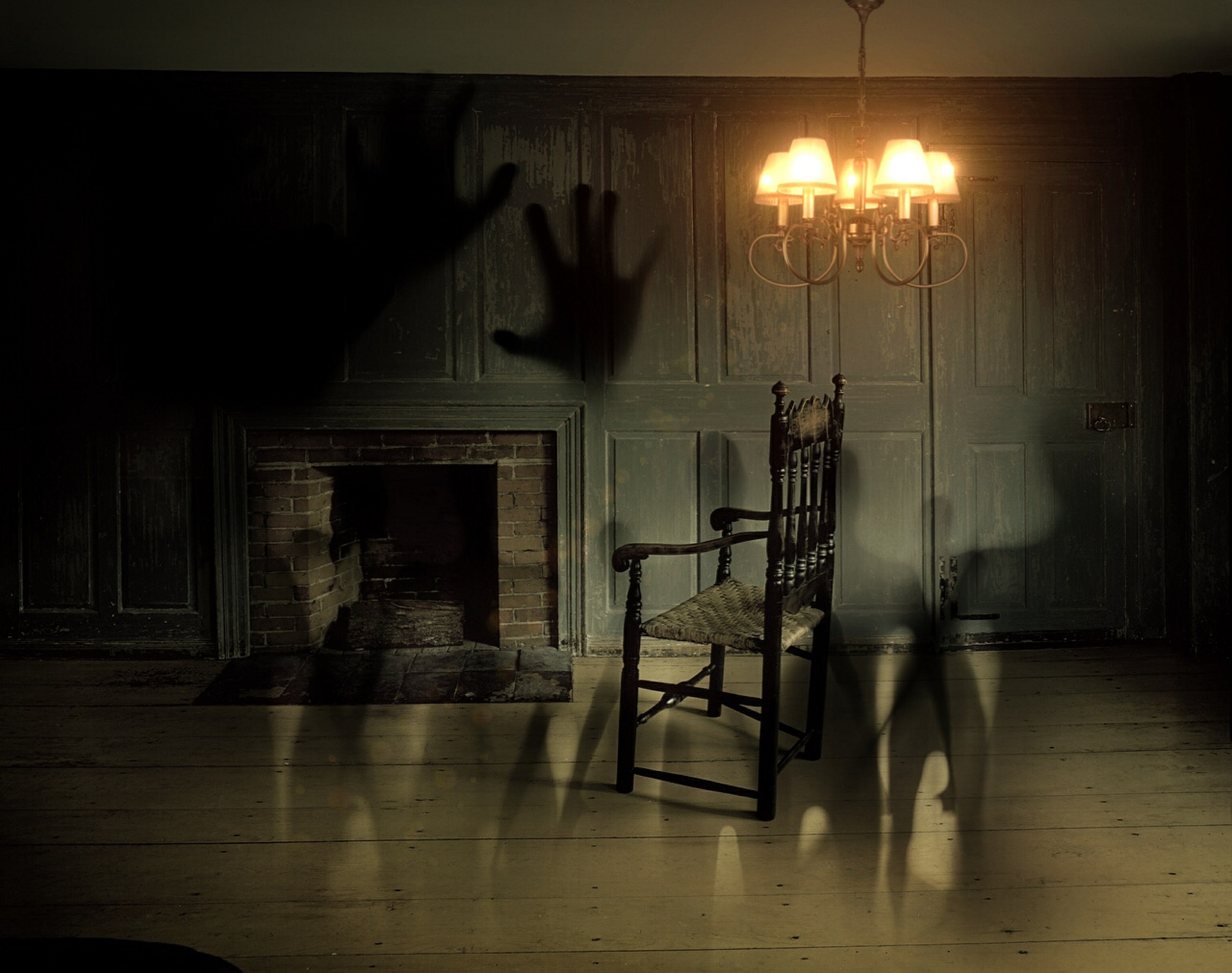 Submitted by Mrs. Jones on
Submitted by Mrs. Jones on

pixabay.com
Pneumatiphobia is the fear of spirits. The origin of the word pneumat is Greek (meaning spirit) and phobia is Greek (meaning fear). Pneumatiphobia is considered to be a specific phobia, which is discussed on the home page. Pneumatiphobia is also known as Pneumatiphobia or Pneumatophobia and related to Spectrophobia (fear of specters or ghosts), Phasmophobia (fear of ghosts), Demonophobia and Daemonophobia (which both mean fear of demons), Bogyphobia (fear of the bogeyman), Satanophobia (fear of Satan, Satanic control or devils), Hadephobia, Stygiophobia and Stigiophobia (which all mean fear of Hell), and Wiccaphobia (fear of witches or witchcraft).
What are the causes?
It is generally accepted that phobias arise from a combination of external events (i.e. traumatic events) and internal predispositions (i.e. heredity or genetics). Many specific phobias can be traced back to a specific triggering event, usually a traumatic experience at an early age. Social phobias and agoraphobia have more complex causes that are not entirely known at this time. It is believed that heredity, genetics, and brain chemistry combine with life-experiences to play a major role in the development of phobias. (Wikipedia - phobia). - http://http://common-phobias.com/Pneumati/phobia.htm
In many cases the fear of spirits may rest in family stories about a house that is haunted by spirits. The stories may run from something as benign as a chair that rocks on its own to something more nefarious.
One can come by this phobia as a result of seeing the fear lived out in the lives of someone who convincingly shares tales of their experience and unintentionally invites others to join in their phobia.
Those who have this fear may avoid areas they believe spirits dwell or they may avoid dark places or circumstances where others have suggested spirits may reside. Other symptoms include elevated or irregular heartbeat, air hunger, trembling, a sense of paranoia, anxiety or panic attack, nausea, sweating.
This fear can get to the point where individuals begin to see things that may not be there. Their minds may create apparitions that are only in the minds of the pneumatiphobe. A therapist can help a pneumatiphobe come to terms with the source of the fear as being something that has not proven harmful and while it is misunderstood it may not require a fearful response. - http://www.phobiasource.com/pneumatiphobia-fear-of-spirits/
What are the symptoms?
As with any phobia, the symptoms vary by person depending on their level of fear. The symptoms typically include extreme anxiety, dread and anything associated with panic such as shortness of breath, rapid breathing, irregular heartbeat, sweating, excessive sweating, nausea, dry mouth, nausea, inability to articulate words or sentences, dry mouth and shaking.- http://http://common-phobias.com/Pneumati/phobia.htm
Five Strategies for overcoming Pneumatiphobia:
According to http://www.hypnosisondemand.com/overcome-pneumatiphobia-fear-dead-spirits/
Strategy #1 for Overcoming Pneumatiphobia or the Fear of The Dead or Spirits: Face your fear head on. – Realize that there is nothing to be embarrassed about. Thousands of others face what you are facing every single day. You are not alone in this pneumatiphobia battle. For this strategy to be most effective, it is best to gradually build up your exposure. Then spend some time in the presence of the very thing that fuels your pneumatiphobia. Start slow and small and gradually work your way up. Practice and repetition are the keys to this strategy working.
Strategy #2 for Overcoming Pneumatiphobia or the Fear of The Dead or Spirits: Don’t let panic or setbacks paralyze you. – Everyone has a bad day now and then. The important thing is not to let yours debilitate you from moving forward. Although such days may make it feel like you’re not making any progress, they’re deceitful. On such occasions, step back and assess how far you’ve come with your pneumatiphobia. If you’re being honest with yourself, chances are you’ll see some real results. Eliminate all doubt and keep telling yourself, “If I’ve come this far, I can keep going. I will prevail.” And then go, go, go starting now, or at the very latest tomorrow.
Strategy #3 for Overcoming Pneumatiphobia or the Fear of The Dead or Spirits: Keep a big picture perspective. – As Entrepreneur magazine points out, this strategy is all about understanding “what opportunities you have to lose.” You’re afraid of the dead or spirits but what is allowing your fear of The Dead or Spirits to have a stranglehold over you causing you to miss out on? Don’t live with regrets or put off embracing major changes until it’s too late.
Strategy #4 for Overcoming Pneumatiphobia or the Fear of The Dead or Spirits: “Treat fear as a call to action.” – As an extension of strategy #3, Inc. magazine recommends reframing your notion of your fear of the dead or spirits. Rather than thinking of it as a crippling aspect of your personality that you just have to keep living with, consider it a wake-up call—as a motivator to start claiming the life you’ve always wanted. “Write down a specific plan of the exact steps that you’ll take,” the publication recommends.
Strategy #5 for Overcoming Pneumatiphobia or the Fear of The Dead or Spirits: “Rewire your brain.” – Entrepreneur magazine offers this directive as “one of the surest ways to overcome your fears and develop the courage that is needed to get to where you want to go.” Easier said than done though. That’s where the assistance of a professional can come in handy. But one-on-one counseling sessions are so expensive, you’re telling yourself. Fortunately, there are affordable alternatives. Hypnotherapy has proven itself to be a very effective means of permanently rewiring the brain against pneumatiphobia. And the good news is that thanks to today’s technology, hypnosis can be performed extremely cost-effectively from the comfort and convenience of your own home.
- 900 reads